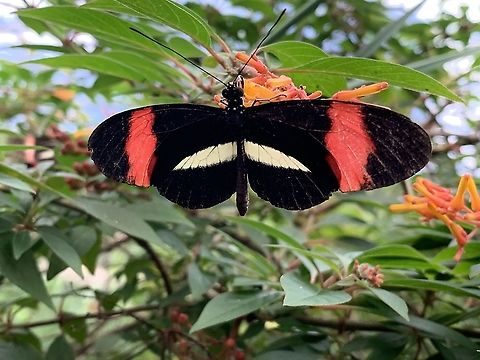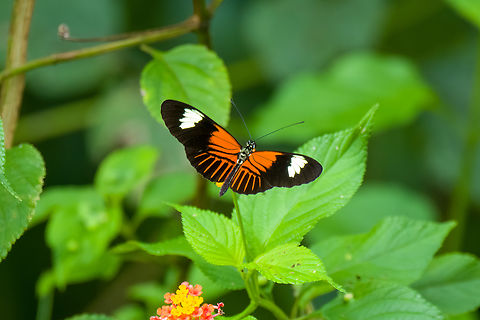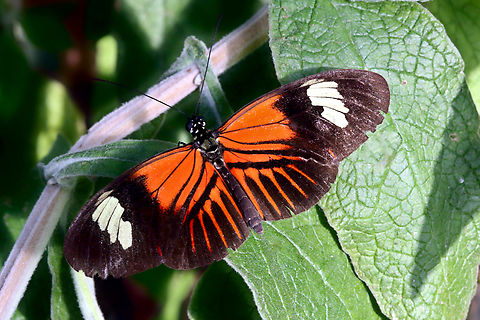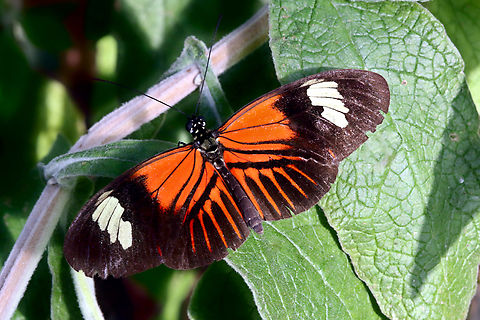
Appearance
The postman butterfly has large long wings with an orange stripe down each forewing. It is poisonous and has red patterns on its wings. They tend to look similar to the species "Heliconius erato". Two features found on the underside help to distinguish "H. erato" from "H. melpomene"—"H. erato" has four red dots where the wing attaches to the thorax while "H. melpomene" has three and the yellowish white stripe on the underside reaches the margin of the hindwing in "H. erato" but ends before reaching the margin in "H. melpomene".There are many morphs of this butterfly throughout Central and South America. The geographical variation in patterns has been studied using linkage mapping and it has been found that the patterns are associated with a small number of genetic loci called genomic "hotspots". Hotspot loci for color patterning have been found homologous between co-mimics "H. erato" and "H. melpomene", strengthening evidence for the parallel evolution between the two species, across morph patterns.

Naming
Subspecies of "Heliconius melpomene" include:⤷ "Heliconius melpomene aglaope"
⤷ "Heliconius melpomene amandus"
⤷ "Heliconius melpomene amaryllis"
⤷ "Heliconius melpomene cythera"
⤷ "Heliconius melpomene euryades"
⤷ "Heliconius melpomene malleti"
⤷ "Heliconius melpomene melpomene"
⤷ "Heliconius melpomene meriana"
⤷ "Heliconius melpomene nanna"
⤷ "Heliconius melpomene penelope"
⤷ "Heliconius melpomene plesseni"
⤷ "Heliconius melpomene sticheli"
⤷ "Heliconius melpomene rosina"
⤷ "Heliconius melpomene thelxiope"
⤷ "Heliconius melpomene unimaculata"
⤷ "Heliconius melpomene vicinus"
⤷ "Heliconius melpomene vulcanus"
⤷ "Heliconius melpomene xenoclea" (Hewitson, [1853]

Reproduction
The caterpillar feeds on passion flower species. In Central America, the host plants are "Passiflora oerstedii" and "Passiflora menispermifolia". In other places they breed on several other "Passiflora" species. Larvae of Heliconius charithonia also eat "Passiflora", in order to indirectly attract males to females via the chemical signals emitted upon feeding.References:
Some text fragments are auto parsed from Wikipedia.
